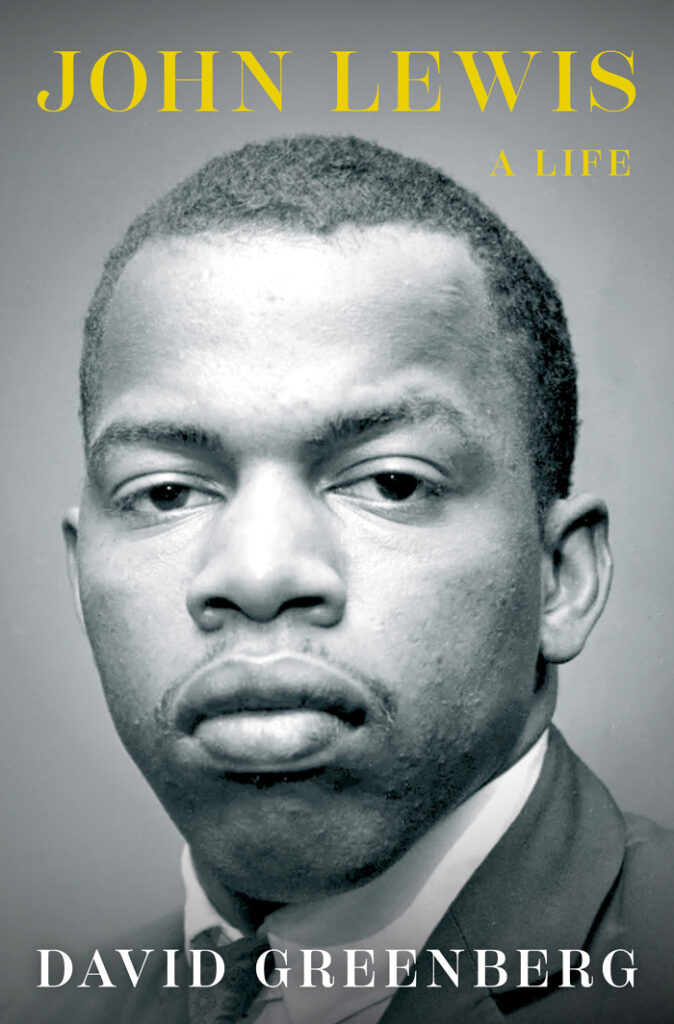c.2024, Simon & Schuster
$35.00
704 pages
By Terri Schlichenmeyer
The Truth Contributor
You give, and you give, and you give.
No problem. If you can be of service to your community, then that’s what you’ll do. You’ll volunteer where you’re needed. You’ll offer up your time to organize events and gather other helpers. You’ve dedicated your life to public service because, as in the new biography, John Lewis: A Life by David Greenberg, you’ve got it to give.
Born into a large but poor family in 1940, John Lewis grew up dodging chores in his father’s fields, in favor of time spent reading anything he could get his hands on. Lewis’s extended family – numbering in the hundreds – never minded much. They knew young John as someone who had big plans for getting off the farm and making something of himself.
Though he was already a victim of Jim Crow laws, and racism kept him from the books and education he craved, Greenberg says that “John’s teenage years coincided with the emerging civil rights movement….” and that became Lewis’s focus. He avidly followed the radio broadcasts of Martin Luther King, Jr., who became a beacon for him.
When it was time to choose a college, Lewis attended the American Baptist Theological Seminary in Nashville, but he “began… to ‘drift away'” from the church because it frowned on his interest in the NAACP. He chose another church and eventually made a name for himself there as a gentle, level thinker and a leader.
By 1960, Lewis had become more active in the effort for equality; in 1961, he met Dr. King, who “had a high opinion of Lewis…” King, in fact, offered Lewis a job but Lewis “felt committed to SNCC,” and turned the great man down.
Still, Lewis kept in contact with King after he went to work with Robert Kennedy in 1968. He was organizing on behalf of Kennedy in Indianapolis when Dr. King was assassinated; he was in New York when Kennedy was shot…
It’s almost impossible in a small article like this to explain the breadth and depth of John Lewis’s days, or of this book. There’s so much to learn, so many anecdotes to explain his work and his life. Since distilling what author David Greenberg offers won’t do justice to either subject or saga, just know that John Lewis is about as comprehensive as it gets.
Using archives and other, newer sources, Greenberg dives into Lewis as a whole, taking us back even before he was born. Readers who’ve spent considerable time studying the politician will be pleasantly surprised to find new information here; those who are familiar with Lewis’s Civil Rights work or his politics will devour the until-now unfamiliar parts, making each page a pleasantly dramatic new discovery, like a treasure hunt with an old friend.
Be aware that Greenberg peoples this account of Lewis’s life and his career abundantly, which can be overwhelming unless you devote your time well. John Lewis is a book for students, historians, biography-lovers, political fans, and activists.
Find it for yourself. Consider it for gift-giving.

